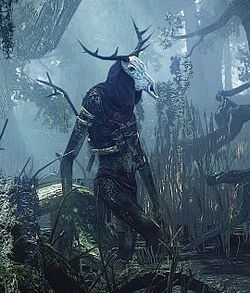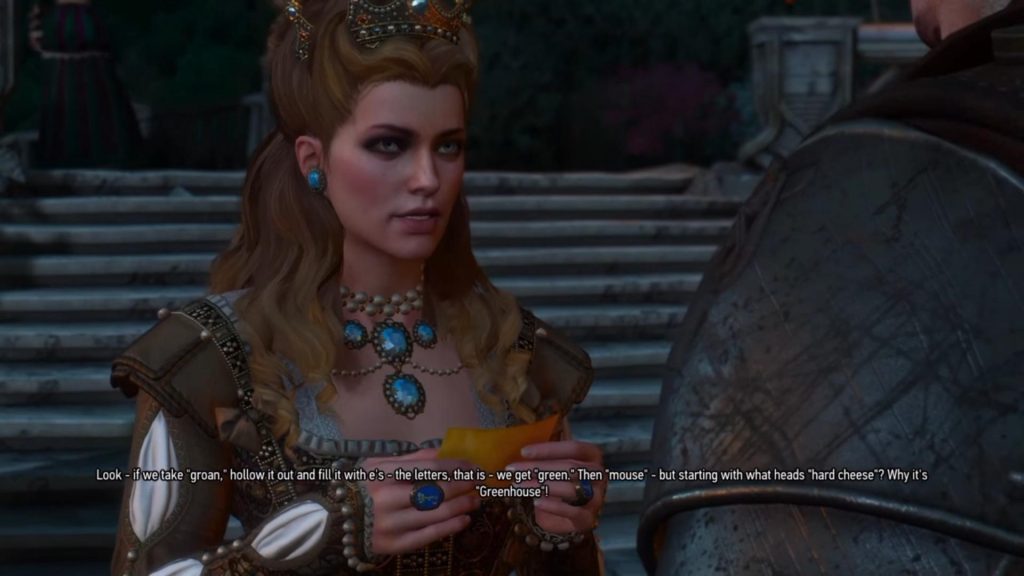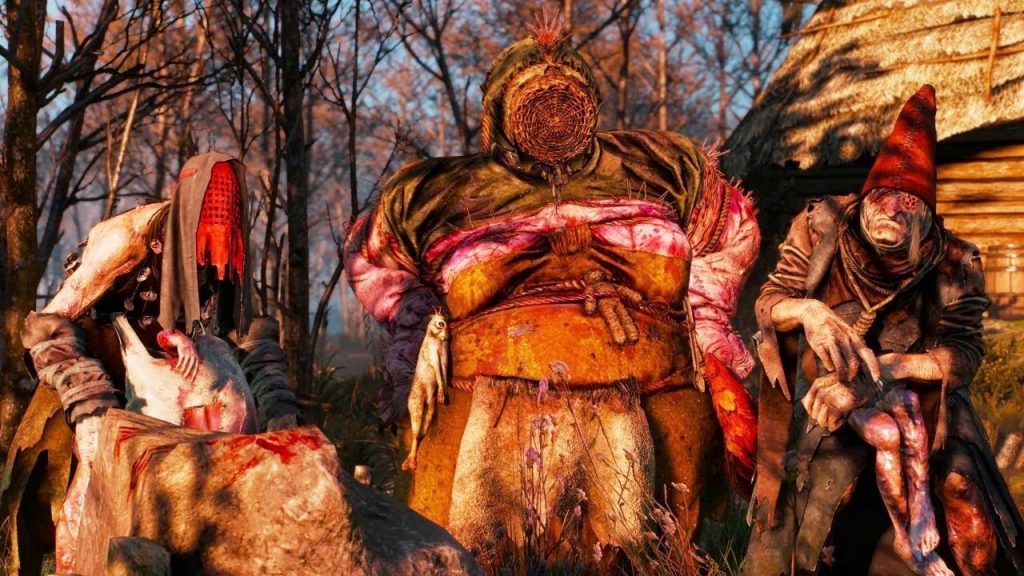
The 15th anniversary of The Witcher series’ video game debut is upon us! The adaptation of Andrzej Sapkowski’s book series was first released in-game format on the PC/Mac in 2007, which was followed up by a sequel in 2011, before the critically acclaimed The Witcher 3 was released in 2017 across most gaming platforms, and, owing to the popularity of all things Witcher, the third installment was localized into 15 different languages – including Arabic, Chinese, Japanese and Russian!
This diverse array of languages and cultures and the fact this was a HUGE game with mountains’ worth of lore point towards a monstrous, ‘Leshy-sized’ localization project dripping with huge amounts of detail. And as you can probably imagine, it took Geralt-like strength and resourcefulness to counter the obstacles that emerged from the depths of the Forest of Localization – of which my favorites will be discussed in this blog.
Localization Challenges
In localization, things like comedy, poetry, and riddles are always a challenge to translate because often a more literal version will lose something – like the humor, a play-on-words, or maybe even culture-specific allusions – so the linguist is tasked with finding a compromise, what they call ‘equivalence’. The riddle encountered in the “Beast of Toussaint” quest is a perfect example of this.
“I begin like a groan hollowed out with ease, then end like a mouse with a head of hard cheese.”
What made this challenging was that the English version used spelling and phonetical clues to both lead and mislead gamers. For example, using the first clue, you need to “hollow out” the word “groan” to make “gr—n”. Simple enough, but then there is a potential dead end because if you were to “fill” the word with “ease”, you would just make “greasen”. The real answer lies in the phonetics: by filling “gr—n” with two “e’s” you make “green” – which is the first word we need.
For our second part of the riddle, we need to “end like a mouse” to make “ouse” – and then add “h” (the “head” from hard cheese), which would give us “house” – or “Green house” when they are combined. Easy, right? Definitely not! And it’s even more challenging to somehow transplant this riddle into other languages – or even to a culture where cheese and mice are not so prominent. Any form of literal translation would cut down the spelling and phonetical derivatives of the clues.

“With water flowsing and a day gone by, a dish, a rabbit’s head, and a golem’s rear sit atop the earth.”
The above is how the riddle was translated into Japanese. As you can see, it completely removed any literal connection to the English version, as the Japanese localization team instead tried to replicate the intent of the riddle: to aid and mislead readers at the same time.
The first part of the clue suggests gamers combine the following three Japanese symbols:
氵 (“water”)
日 (“day”)
皿 (“dish”)
These symbols could then be combined to produce the following symbol: 温 (“warm”).
For the second part of the riddle, the rabbit’s head (ウ) and the golem’s rear (ム) sit atop the earth (土), which is combined to create one symbol: 室 (room) – or “green house” once温and室 are together. This form of ‘equivalence’ – where the team sacrificed the literal fidelity in favor of making the riddle function in the same way – is known as ‘translation loss’, entailing some form of compensation. The concept sounds quite negative, but, in reality, the result here is extremely creative and it’s just one example of how the game could appear ‘untranslated’ to a lot of gamers with a literal approach. To avoid misunderstandings, this creative adaptation of the content is now recognized as the transcreation service.
Remove the Nudity, but Not All the Nudity
Staying with the Japanese version, ‘sensitive content’ featured prominently in The Witcher series. Gore, sexual and religious content may as well have been the three Crones, stalking the CD Projekt RED team menacingly.

In fact, even just establishing localization teams at times proved challenging; half of the Arabic-speaking linguistics refused to work on the game. And many who did refused to translate certain religious content, for example, astronomy or names of gods. And it wasn’t just the localization team that suffered with recruitment issues: some parents of the Brazilian voice actors refused to let their children sing songs about the devil.
Consequently, CD Projekt RED had to change and sometimes even completely remove parts of the game’s source material to make it more acceptable. Nudity and prostitution, for example, didn’t feature in the Arabic version, and religious content was also moderated. This in localization is known as an ‘extra-linguistic’ problem – as the obstacle and solution stretch beyond mere linguistics. Curiously, when Japanese authorities were presented with the same censored version that the Arabic-speaking countries would receive, they insisted that the nudity be put back into the game. This is interesting because it shows how the localization team couldn’t just use a one-size-fits-all policy when censoring the game. Instead, they had to tailor each game because that which is deemed inappropriate in one culture, may not be in another.
The Takeaway
So please “toss a coin to your localization team”, as the translation ghouls and monsters that emerged on the path to Localization Paradise were bountiful! This article briefly touched on voice acting – in parts two and three, we are going to cover the many accents and cultures featured in the regions of The Witcher series’ huge world!
